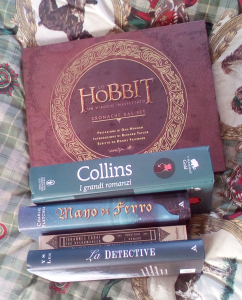It’s World Book Day! What better way to celebrate it than to review the ones I’ve read recently. Here’s what I read in February.
The Power by Naomi Alderman [3/5 stars]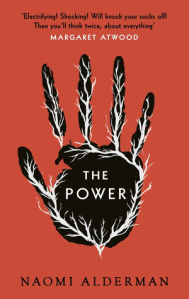
So the concept of this book was an interesting one to me. In short, a role reversal: what if women had the power instead of men? Power being quite literal. Imagine a parallel earth in the present day, but there’s been a latent mutation that starts to manifest in young women in the form of electricity that can be shot from their hands. Older women can’t generate it naturally but can use it if a young woman awakens it in them. This is our setting.
What happens is the unravelling of one social order and the rise of women’s rebellion across the globe, them taking the power. Are you seeing it? It’s allegory. There are four main (and a couple of others off the top of my head) perspectives that act as the observers of the world. Beyond that, though, there’s not much to say about them. They exist on linear axes without any clearly definable character development. This is disappointing and so the book misses out on some of its potential emotive beats: I didn’t massively care for them a great deal.
What we do have, however is some very taught writing and an interesting concept. There’s also a lot of violence (unsurprising) and hoo boy quite a bit of rape as well. When you remove the electrical powers and invert the genders, you’re looking into the mirror of our world which makes it that much more bone-chilling. The allegory is cleverly told but it has, sad to say, not amazing characters. Overall, a good, but not great, book.
On Liberty by Shami Chakrabarti [3/5 stars]
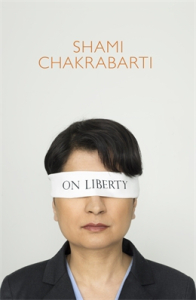
I should not be bored by the discussion of basic civil liberties. I repeat: I should not be bored by the discussion of basic civil liberties. And yet, in 140 pages, I was. What? In this book we get some pretty surprising revelations about surveillance in relation to the 9/11 attacks. This is stuff that directly affects our civil liberties (and is part of a pantheon of material I’m using as research for my book) and yet it was a bitingly dull read. I’m sorry to say those words but the purpose of the book genuinely suffered from the writing. Dry, lawyer-like writing, peppered with some personal stories that tie in with her points. This should have taken me a sitting to read, but it took days instead.
The Future of the Mind by Michio Kaku [3.75/5 stars]
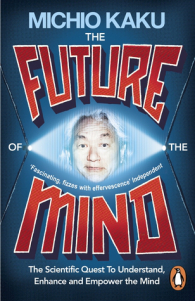
I imagine Michio Kaku is fun at parties. He strikes me as a warm paternal figure with lots of knowledge of cool things and a way of telling good stories about big ideas that are a lot of fun. This is what this book is, in short. For the most part, it’s a lot of speculation. Pills that make you smarter? Merging with machines? An emotional internet … eh maybe. This is heart of a the book: a long series of “this could happen with the development of neuroscience … but not yet”, but that’s alright, that’s what I was kind of looking for.
There’s some light science here that acts as sort of crash course for the layperson—moi—so it’s perfect for the average reader to follow along, learn a thing or two. What sets it apart from being “merely” light and fun is the interweaving of philosophical and scientific pondering that left me with stuff to chew on. It’s not a massively deep book that richly explores concepts, but rather lots of ideas in accessible broad brushstrokes. Also, I was generally surprised and dismayed at how lenient he was towards the MKUltra project. I suppose it’s not the right place to moralise but he spoke about them as if they were near-harmless experiments.
Overall, though, it’s a fun book for someone who wants to go on a speculative and informative journey.
Neuromancer by William Gibson [4/5 stars]

“The sky above the port was the colour of television, tuned to a dead channel.”
Who can top one of the slickest, vaguest writer in literary history? Very few. Pop culture of the last thirty or so years owes a great debt to Gibson. Just look at The Matrix and Ghost in the Shell. We might not have them were it not for Neuromancer. Both of those form a significant portion of our culture, not just in sci-fi society rooms underneath university buildings.
What Gibson lacks in terms of character depth, and clarity, he makes up for sheer originality, which means I’m often torn. I want to like the characters and the plot but half the time I can’t even understand what’s happening. A girl with implanted sunglasses and retractable nails? Using headsets to jack into the internet? Intelligent AIs? Sure, sign me up.
The plot progression barely registered for me so I felt a bit dim, but in general it was written like someone on a drug high, with shades of clarity and obscurity in alternating parts. This feels deliberate as it follows only our main character Case, who is a drug addict, from a limited third-person perspective. Unfortunately, that’s what makes it kind of suffer as well. There is a great deal of complexity about human motivation as well as the integration of technology and consciousness but the depth is missed with the prose. I had to read up on it so I was absolutely clear what I had just read. I imagine it’s one of those reads that becomes greatly improved with repeat visits (like Ancillary Justice) but boy, for such a short book it makes you really work for it. Super Cool (note the capital C) world and ideas. Not so sure about the style.
An extra star for being way, way ahead of its time.
Stone Arabia by Dana Spiotta [4/5 stars]
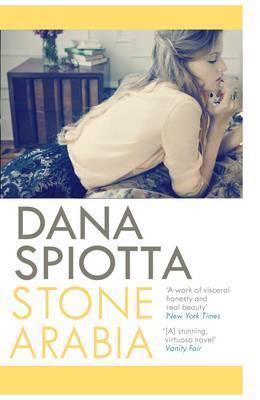
Another month, another Dana Spiotta book.
I don’t know if this is a problem that all of her books face—I have read exactly 50% of them now—but the beginning of this is cluttered. Packed thickly with details of the world we’re to explore, parentheses and seeming tangents, it’s almost off-putting. But then things calm down. The narrative presses on, alternating between first- and third-person, as well as in a form of a sort of metafiction. This is less gimmicky and off-putting than it sounds. Put simply, there are three layers to how the narrative unfolds: the third-person perspective of Denise, our protagonist; her first-person retelling (and remembering of the events of her recent past) which occupies the bulk of the book; and The Chronicles of her brother, Nik, a fictional telling of his life.
Each of the narratives fulfil a specific purpose. The book is about mortality and ponders its many associations like the passage of time, memory, and permanence. There are a sometimes very haunting moments in the book that explore what happens to us when we age, especially through the lens of memory and its disappearance; Denise trying to remember an actress’ name cut a bit too close to my life. It’s a scary thing, forgetting, like a piece of you is disappearing that seemed so crucial, never before to shift. Of course, mortality is described across three crucial points: old age, youth, and the middle ages through Denise, in her 40s, her 20-something daughter, and her ailing mother. The parts on memory are some of the best writing I’ve ever read. It’s very powerful stuff.
On top of that there are musings on how realities can be presented—and distorted—and how we normalise them. Spiotta chooses television cycles. Denise obsessively consumes news and tragedies, and she records her strange and visceral reactions to it.
Almost in direct contrast to this her brother Nik who is a down-on-his-luck, but prolific, musician. He never really had a professional career but continues to produce music for the benefit of a tiny few, mostly family.
So you see there’s a lot to unpack here. The book is barely over 200 pages long and the deceptively simple prose and small size would lead you to believe that it’s a light read. It’s anything but. It’s very astute and unique, empathetic without being showy: the characters feel less charactery—although Nik kind of absorbs that vibe single-handedly—and more like people. It has a lot of interesting things to say in relationship to time and age.
I will say, however, that I’m not sure I understand some of the motivations of Denise, especially in the last third. Not only that, but I wish there was more on the relationship between Denise and her daughter. There was some but I wish there was something a bit more.
Busy month! Currently I’m reading Infinite Jest and a book on economics.
Advertisements Share



